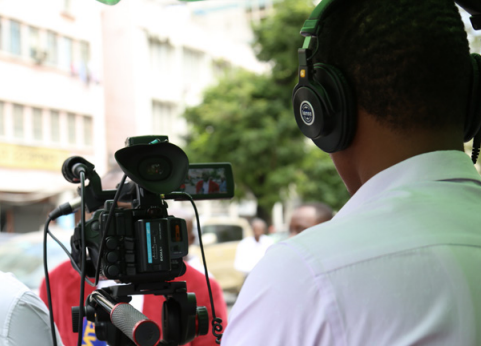Inadequate Awareness of Access to Information Could Cost Citizens
In Rubanda District, a two-day Access to Information training on August 5th and 6th revealed a striking reality. Nearly two decades after Uganda enacted the Access to Information Act, many local leaders, journalists and civil society members remain only slightly familiar with it. At Volcano Hotel, Twaweza East Africa, and the Africa Freedom of Information Centre convened parish chiefs, community development officers, planners, change agents, journalists, and citizen follow-up committees to address this knowledge gap and discuss how better access to information could strengthen citizen participation in local government planning and influence better service delivery.
Uganda was among the first five African countries to pass an access to information law, when the Access to Information Act was enacted in 2005. Nearly twenty years later, the understanding of this law in Uganda is still alarmingly low.
The training in Rubanda revealed a sobering reality. Local government leaders, including parish chiefs and community development officers, despite a few having heard of the ATI Act, had never accessed or read it. They had little knowledge of how it works and had never received a single request for information from citizens.
Furthermore, most participants admitted that they had never exercised their right to seek public information. Among these were journalists and leaders of civil society organisations. They had never asked for a copy of a budget, a project plan, or a progress report. They had never exercised their right to know. Without this awareness, the law is reduced to ink on paper. In practice, public ignorance becomes an enabler of poor governance.
Access to information is more than a legal provision. It is a tool for accountability and participation. Around the world, citizens use it to understand how their governments operate, scrutinise budgets, influence priorities and track the delivery of services. In Uganda, this right often exists only in theory. When parish chiefs and community development officers, who are even closer to the citizens, have limited awareness of the Act itself, it reveals that an entire accountability chain is compromised. Without awareness of this Act, citizens cannot demand better services, and without demand, government agencies face little pressure to improve their performance.
“…Effective citizen action is possible if citizens develop the abilities to gain access to information of all kinds and the skills to put such information to effective use.” – Harry Boyte, American scholar and author.
In the training, what emerged was a mix of surprise, curiosity and even disbelief. Participants were surprised to learn that most government information is public, unless it is specifically protected. They had assumed that budgets and plans were confidential.
One participant remarked, “If this training can reach our deep rural villages, people will start asking information on service delivery. That will change how services are delivered.” The statement captured the potential ripple effect of awareness that, once people know, they begin to demand answers.
The training brought together a diverse group of individuals. Eleven civil society leaders attended, representing organisations such as the Green Valley Health Foundation, Step by Step Fortune for Batwa, Batwa Development Organisation, Africa Water Solution, and the United Organisation for Batwa Development in Uganda. Eight journalists participated, from both local and national media, including Tayari Media, Rubanda Tukore FM, Peak FM, Voice of Kigezi, Radio One, Uganda Radio Network, Daily Monitor and NBS. On the first day, there were twenty-three participants, but only two were women. The second day focused on parish chiefs, planners and community development officers from across Rubanda District.
The conversation extended beyond the hotel: a two-hour radio talk show was broadcast to a broader audience. It featured the district planner, the community development officer for the district, the country director of Twaweza and the executive director of AFIC.
This training effectively highlighted the scope of the challenge. Suppose local leaders, journalists, and active civil society members have remained largely unaware of the Access to Information Act for nearly two decades. In that case, the situation in rural communities is likely far worse. The gap cannot be closed by a single workshop. It requires sustained public education, proactive disclosure of information by government agencies and a deliberate effort to reach remote areas.
When people understand their rights, they are more likely to use them. Once they do, they can demand better services, question priorities and hold leaders to account. Inadequate awareness of access to information does not just cost citizens their rights. It costs them better services, responsive leadership and the democracy they deserve.
This post was written by Nelson Bahati, Consultant, Advocacy and Engagement, Twaweza Uganda.


